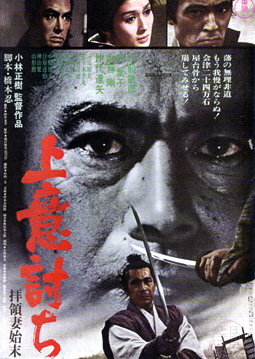
This is what I watched on election night once it became apparent that the votes might take the depressing direction they eventually did. Better a lovable con man like W.C. Fields than a real-life flamboyant fraud, thought I. Fields is Egbert Sousé (the accent is aigu, not grave, as he insists), ne'er-do-well paterfamilias of a dysfunctional household, who escapes from his nagging wife (Cora Witherspoon) and mother-in-law (Jessie Ralph) and his horrid daughters Myrtle (Una Merkel) and Elsie Mae (Evelyn Del Rio) to the corner saloon as well as a brief stint as a movie director that somehow leads to his employment as a detective in the local bank. (Honestly, never try to summarize the plot of one of Fields's movies.) It's all inspired, slightly surreal nonsense, adorned by characters with names like Og Oggilby (Grady Sutton), J. Pinkerton Snoopington (Franklin Pangborn), and A. Pismo Clam (Jack Norton). All I can say is that it made me laugh when I felt like crying.

